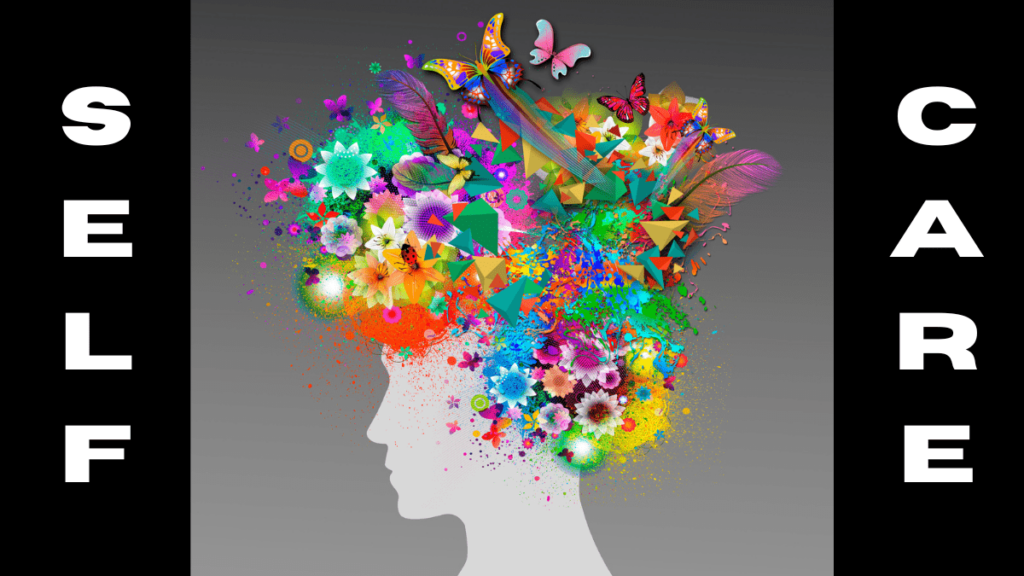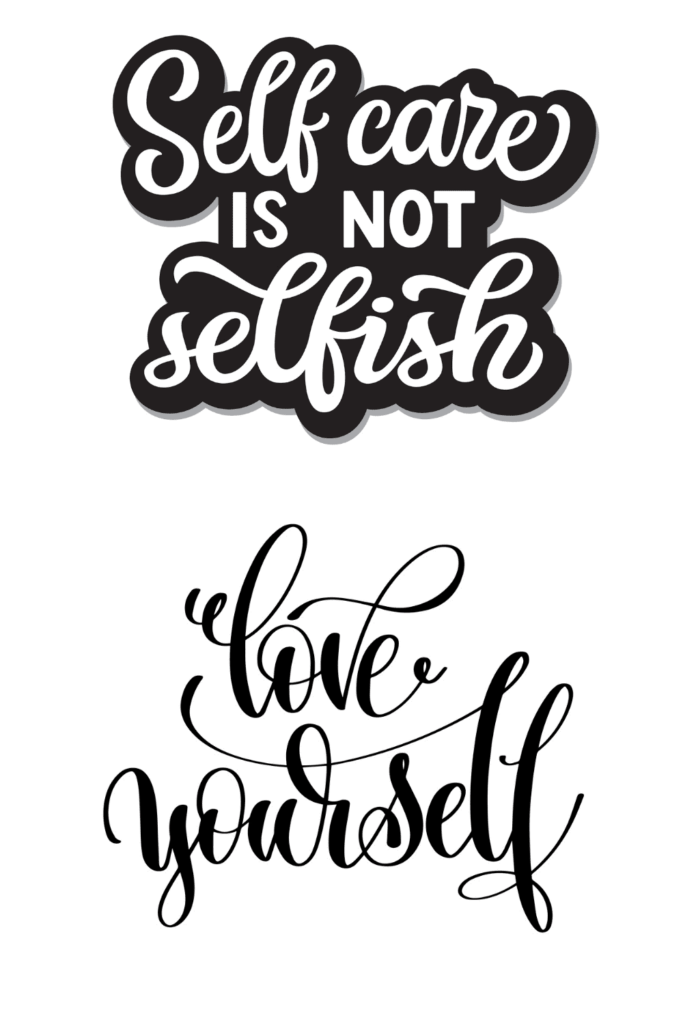
Practicing self-care is essential for maintaining mental and emotional well-being, especially on bad days. This article explores various self-care ideas, including physical self-care, mental and emotional self-care, and social and spiritual self-care. By incorporating these self-care activities into your daily routine, you can better cope with challenging times and create a healthier, more balanced lifestyle.
Everyone has bad days, and sometimes it can be difficult to know how to take care of yourself during these trying times.
Practicing effective self-care is an essential part of maintaining your mental and emotional well-being, even when the going gets tough.
In this article, I will explore various self-care ideas that can help lift your spirits and get you back on track when you’re having a difficult day.
Understanding that self-care is different for everyone will help you find the most effective methods for your personal needs.
It’s important to choose self-care activities that resonate with you and are genuinely enjoyable, in order to create a sense of ease and comfort during difficult times.
In the following sections of this article, I will discuss a range of activities and techniques to help you tailor a self-care routine for those less-than-stellar days.
While it is wise to focus on your physical and emotional well-being in the face of adversity, remember that self-care should be a continual practice, rather than a temporary fix.
By incorporating these activities into your daily life, you will be better equipped to handle bad days and improve your overall resilience and emotional strength.
Recognizing a Bad Day
It’s essential to be aware of experiencing a bad day to take appropriate self-care measures.
You might feel more irritable, overwhelmed, or just not your usual self. The first step in dealing with a bad day is acknowledging that not every day will be perfect.
Some common signs of a bad day include:
- Feeling lonely or isolated
- A sense of increased stress or anxiety
- Lack of motivation or decreased productivity
- Physical discomfort, such as headaches or fatigue
- Feeling emotionally numb or disconnected
It’s vital to remember that experiencing a bad day doesn’t mean there’s something wrong with you.
Everyone has bad days, and recognizing this can help you learn how to cope and practice self-care effectively.

Physical Self-Care
Physical self-care is an essential aspect of dealing with a bad day. It involves taking care of your body and supporting its proper functioning.
This section explores some key elements: exercise and movement, nutrition and hydration, rest and sleep.
Exercise and Movement
Engaging in regular exercise and movement can lift your mood and improve your overall well-being on a bad day.
When you exercise, your body releases endorphins, which are natural chemicals that help to reduce pain and improve mood. Endorphins interact with receptors in your brain that trigger positive feelings, similar to the effects of opioids. Exercise also increases blood flow to the brain, which can help to improve cognitive function and reduce stress levels. There have been numerous studies that have shown the positive effects of exercise on mental health and well-being. For example, a study published in the Journal of Clinical Psychiatry found that exercise can be an effective treatment for depression, with similar results to antidepressant medication.
Here are some simple and effective activities:
- Take a 15-minute walk.
- Perform light stretches.
- Dance to your favorite song.
- Practice yoga or tai chi.
Choose activities you enjoy and aim for consistency rather than intensity.
Nutrition and Hydration
Maintaining a balanced diet and staying hydrated can significantly impact your ability to handle stress and negative emotions.
Here are some tips:
| Nutrition | Hydration |
| Eat a healthy balanced meal | Drink a glass of water every 2 hours |
| Include a variety of fruits and vegetables | Avoid excessive caffeine and sugary drinks |
| Opt for whole grains and lean proteins | Listen to your body’s thirst signals |
Rest and Sleep
Getting sufficient rest and sleep is crucial for coping with a bad day. It helps in restoring energy levels and improving mental clarity.
To promote restful sleep, consider these practices:
- Establish a consistent sleep schedule.
- Create a calm sleep environment.
- Limit screen time before bed.
- Practice relaxation techniques, such as deep breathing or meditation.
By incorporating these suggestions into your daily routine, you can optimize your physical self-care and better cope with challenging days.
Mental and Emotional Self-Care
Now I’m going to focus on mental and emotional self-care and provide various ideas to help you cope with bad days.
In this part of the article you will read about Mindfulness and Meditation, Journaling and Reflection, and Positive Affirmations.
Mindfulness and Meditation
Practicing mindfulness and meditation can greatly improve emotional well-being on a bad day.
These techniques help individuals focus on the present moment, reducing stress, anxiety, and negative thoughts.
- Take 5-10 minutes to practice deep breathing exercises.
- Try a guided meditation app, such as Headspace or Calm.
- Engage in a quick body scan, focusing on physical sensations to anchor to the present moment.
Journaling and Reflection
Journaling allows individuals to express their feelings and organize their thoughts.
Reflecting on emotions can lead to a better understanding of the triggers behind a bad day and contribute to improved mental health.
- Write down emotions and thoughts in a journal.
- Reflect on potential triggers and patterns of negative thinking.
- Consider solutions or coping strategies for future challenges.
Positive Affirmations
Positive affirmations can help combat negative thoughts and boost self-esteem.
Repeating affirmations to oneself cultivates an optimistic mindset and fosters emotional resilience.
- Choose 2-3 positive affirmations to start, such as “I am strong” or “I can handle this.”
- Repeat affirmations aloud or silently throughout the day.
- Keep a list of affirmations handy for reference when necessary.
Social and Spiritual Self-Care
One way to take care of yourself on a bad day is by focusing on social and spiritual self-care.
This part of the article highlights a few essential strategies, such as connecting with others, engaging in hobbies and interests, and practicing gratitude and kindness.
Connecting with Others
On days when you feel down, it’s essential to maintain social connections, as they can significantly impact your mental well-being. Here’s what you can do:
- Reach out to friends or family members for a chat, either in-person, over the phone or via text.
- Join a support group to share your experiences and learn from others facing similar challenges.
- Participate in social or networking events in your community.
Engaging in Hobbies and Interests
Pursuing activities you enjoy can help relieve stress and build positive connections with like-minded individuals.
Some ideas for engaging in hobbies and interests are:
- Taking up a new creative hobby, such as painting, writing or learning a musical instrument.
- Joining a group or club related to your interests, like a book club or sports team.
- Visiting museums, galleries, or other cultural locations to broaden your horizons.
Practicing Gratitude and Kindness
The practice of gratitude and showing kindness to yourself and others can help you foster a positive mindset, even on challenging days.
Consider incorporating the following strategies into your routine:
- Keeping a gratitude journal to record things you are thankful for, even on tough days.
- Performing acts of kindness for others, such as volunteering or helping a neighbor in need.
- Engaging in self-compassion by taking breaks, offering yourself kind words, and not being too harsh on yourself if things don’t go as planned.

Creating a Personalized Self-Care Plan
Everyone’s self-care needs are unique, so it’s essential to create a personalized plan that addresses your specific requirements.
The first step is to evaluate your triggers, stressors, and coping mechanisms in order to determine the most effective self-care strategies.
Begin by listing daily activities and routines, and assess their impact on overall well-being. Consider incorporating healthy habits into this plan:
- Regular exercise
- Healthy eating habits
- Getting enough sleep
- Managing stress
Next, identify the activities that spark joy and relaxation, such as:
- Spending time in nature
- Practicing creative hobbies
- Meditation or mindfulness exercises
- Socializing with friends or loved ones
Creating a personalized self-care plan is an ongoing process that may require adjustment and refinement as life circumstances change.
It is important to regularly review the plan and ensure it is still meeting the intended needs.

Final Words
Bad days are inevitable, but practicing self-care can make a significant difference in how they impact your well-being.
By incorporating some of the self-care ideas mentioned in this article, you can better navigate through challenging times and ultimately create a healthier, more balanced lifestyle.
Remember that it’s essential to be kind to yourself, take breaks, and incorporate activities that bring joy and relaxation.
Moreover, maintaining a balanced diet, getting regular exercise, and ensuring adequate sleep plays a crucial role in overall mental and physical health.
Sometimes, seeking support from loved ones or professionals may be necessary to help overcome difficult days.
In the end, the key to overcoming a bad day lies in understanding that everyone experiences them and that there is power in practicing self-care to improve your well-being.
Before you go, please check out this article: How to Stop Overthinking & Worrying
You may also be interested in: 1. 5 Ways to Calm Yourself Down Quickly & Effectively 2. Learn How to Control Your Anger With Anger Management Journal 3. Affirmations For Self-Worth 4. Remember to Live, Your Time is Limited 5. Self-Care vs Self-Love. What's the Difference?






